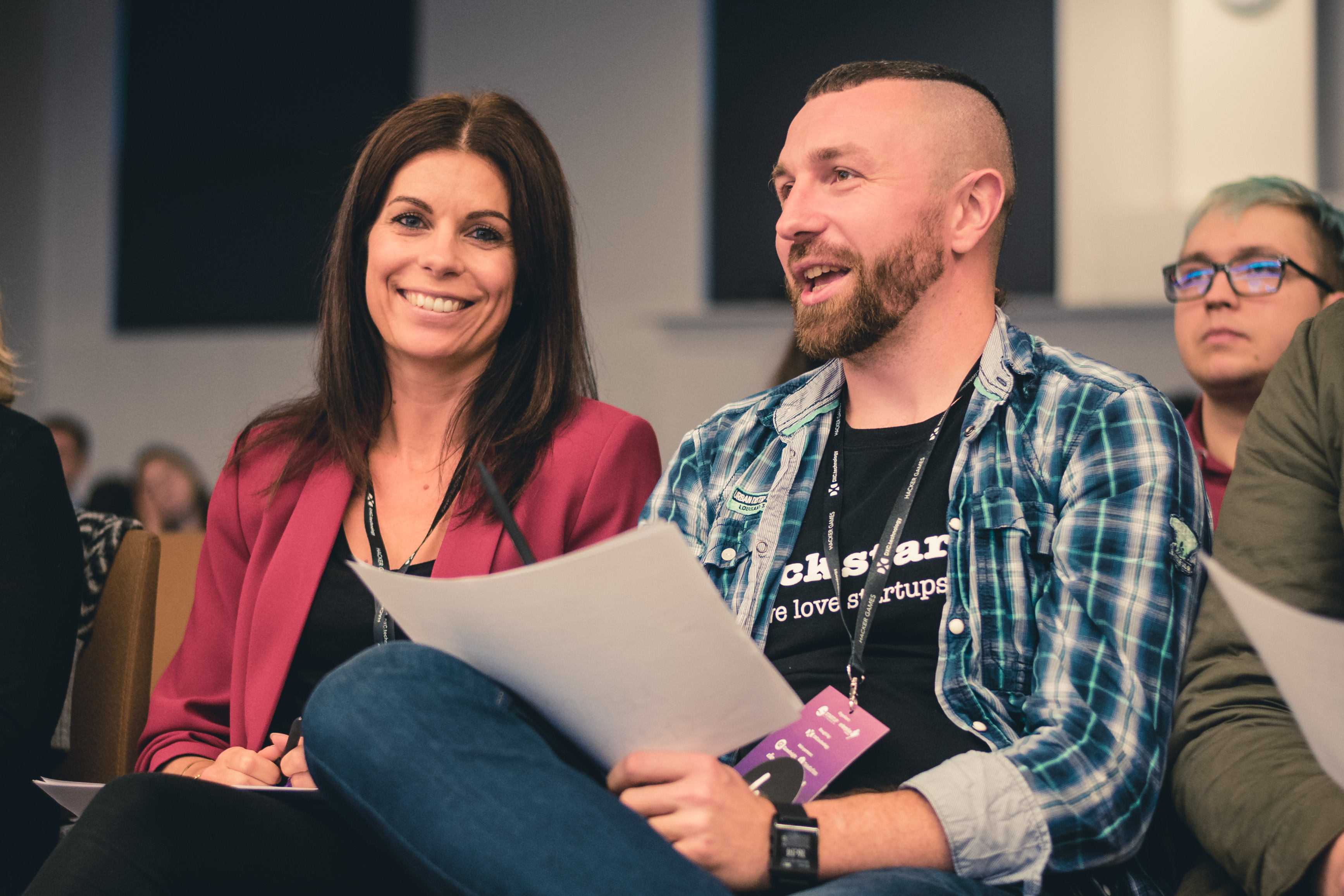Interview with Anniversary Hacker Games Mentor Lone Jensen
2017
Dec 08
Dec 08

Few weeks ago, November 24-26th Anniversary Hacker Games took place in University of Applied Social Sciences. Since it was 10th hackathon organized by Startup Lithuania, we have had special guests – three international accelerators who were advising our attendees and helped to choose the winners.
We asked Lone Jensen from Startup Wise Guys to share her insights about our hackathon and give some advices.
What do you think about our hackathon “Hacker games”? Please share some your insights about this hackathon.
Lone: I think it was a really great event. Was amazed to see the high number of participants and also the amount of ideas that were presented on Friday. Really cool and a great job of the organizers! It was obvious that a great number of the participants had participated in a hackathon before and already knew what it was all about. Happy to see this as a hackathon is one place where the ecosystem can influence the coming founders and entrepreneurs, and in a way lay the very basic foundation and drive for this in the future.
We already talked about this during the hackathon weekend, but it could be an idea to drive the event more and offer mentor and pitch training sessions throughout the event days. Some kind of gate checks for the teams to pass to help them focus and develop. I was of course not there the full days, so maybe you already had this in the program.
We had over 200 participants and you had a chance to talk with some of them during mentoring sessions. What impression you made about Lithuanian hackers? What are their good features and what are the areas they could improve?
Lone: As mentioned above many of the participants were young and of course are only now building up their experience and knowledge. I noticed their high energy and eager to build the prototypes and concepts on the short time available. All had really positive attitudes and openness to the mentoring feedback. They answered well on the questions during the sessions and I believe that only a few of the teams we met on Saturday did not make it for Sunday with a working demo to show. Areas to improve could be to focus more on validation of idea and concept. Even during a hackathon validation in the “real world” can be done. This is a key thing in a startup, so practice is gold! Also, not only to look at the Lithuanian market but expand the market view across borders.

(Photo by Liudas Baronas)
What advices Startup Wise Guys could give for our attendees to make them one step closer to your or other great accelerators, what lessons they should learn?
Lone: Attending a hackathon and other startup related events is always a good learning. On these kind of events knowledge about being an entrepreneur and the fundamentals of the startup world can be picked up which is always an advantage if you want to found or work in a startup later on. The majority of the ideas worked on at a hackathon are of course more early stage and need more maturing and validation before being ready for an accelerator, but it is a great learning and experience to get mentoring, feedback, get challenged, pitch, and build both concept, product and business plan during a weekend like this. One thing which was not so much in focus during the weekend was the team. For us, Startup Wise Guys, the team is of great importance when we select the startups for our batches. Idea etc. also matters, but without a well functioning team with the right attitude and capabilities the idea has only little value.
Was it hard to pick the winners of Hacker Games, did you notice the leaders or every one were pretty much the same level?
Lone: The top list of each category were more or less easy to pick. We then had some final discussions about the actual winners as many of them were quite close in how we scored them. Some teams stood more out than others. Both due to progress and idea. Some were also more experienced and presented a better and more structured pitch. Overall I really think every team made a huge effort and getting from zero to a working demo in such a short time is a big accomplishment.
How do you think, what does Lithuanian startups need to do to attract famous accelerators and investments? What steps we should take next?
Lone: Well, there are several options to attract an accelerator into the ecosystem (which BTW we believe has been lacking since startup highway stopped its accelerator activities and it is hurting the ecosystem not to:
a) produce more local startups
b) expose local startups to international teams
c) gather investors together around a joint investment opportunity
The options to attract the accelerator are for the government to release an accelerator tender (which we believe is on the potential making), similar to the tender that have happened in Estonia and Latvia in 2017
Second opportunity is to generate an opportunity for a local investor team to invest on an accelerator and offer that to an international accelerator to come in and complement their investment (a and b could be complimentary).
The last option is for a local large corporate to invest either as co-investor or as a marketing branding vehicle on an accelerator on an area strategic to their core or future business.
Thank you for your answers and we hope to see you soon!
